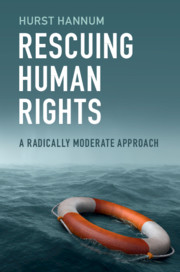Book contents
- Rescuing Human Rights
- Rescuing Human Rights
- Copyright page
- Dedication
- Epigraph
- Contents
- Acknowledgments
- List of Abbreviations
- Preface
- 1 Introduction: Assumptions and Principles
- 2 Crime and (Occasional) Punishment
- 3 The Importance of Government, for Better or Worse
- 4 Human Rights and … Whatever
- 5 Undermining Old Rights with New Ones: You Can’t Always Get What You Want
- 6 Women, Sex, and Gender
- 7 The Flexibility of Human Rights Norms: Universality Is Not Uniformity
- 8 Human Rights Hawks
- 9 The Indispensable State? The United States and Human Rights
- 10 The Way Forward: Less Is More
- Notes
- Index
10 - The Way Forward: Less Is More
Published online by Cambridge University Press: 11 February 2019
- Rescuing Human Rights
- Rescuing Human Rights
- Copyright page
- Dedication
- Epigraph
- Contents
- Acknowledgments
- List of Abbreviations
- Preface
- 1 Introduction: Assumptions and Principles
- 2 Crime and (Occasional) Punishment
- 3 The Importance of Government, for Better or Worse
- 4 Human Rights and … Whatever
- 5 Undermining Old Rights with New Ones: You Can’t Always Get What You Want
- 6 Women, Sex, and Gender
- 7 The Flexibility of Human Rights Norms: Universality Is Not Uniformity
- 8 Human Rights Hawks
- 9 The Indispensable State? The United States and Human Rights
- 10 The Way Forward: Less Is More
- Notes
- Index
Summary
- Type
- Chapter
- Information
- Rescuing Human RightsA Radically Moderate Approach, pp. 157 - 172Publisher: Cambridge University PressPrint publication year: 2019



